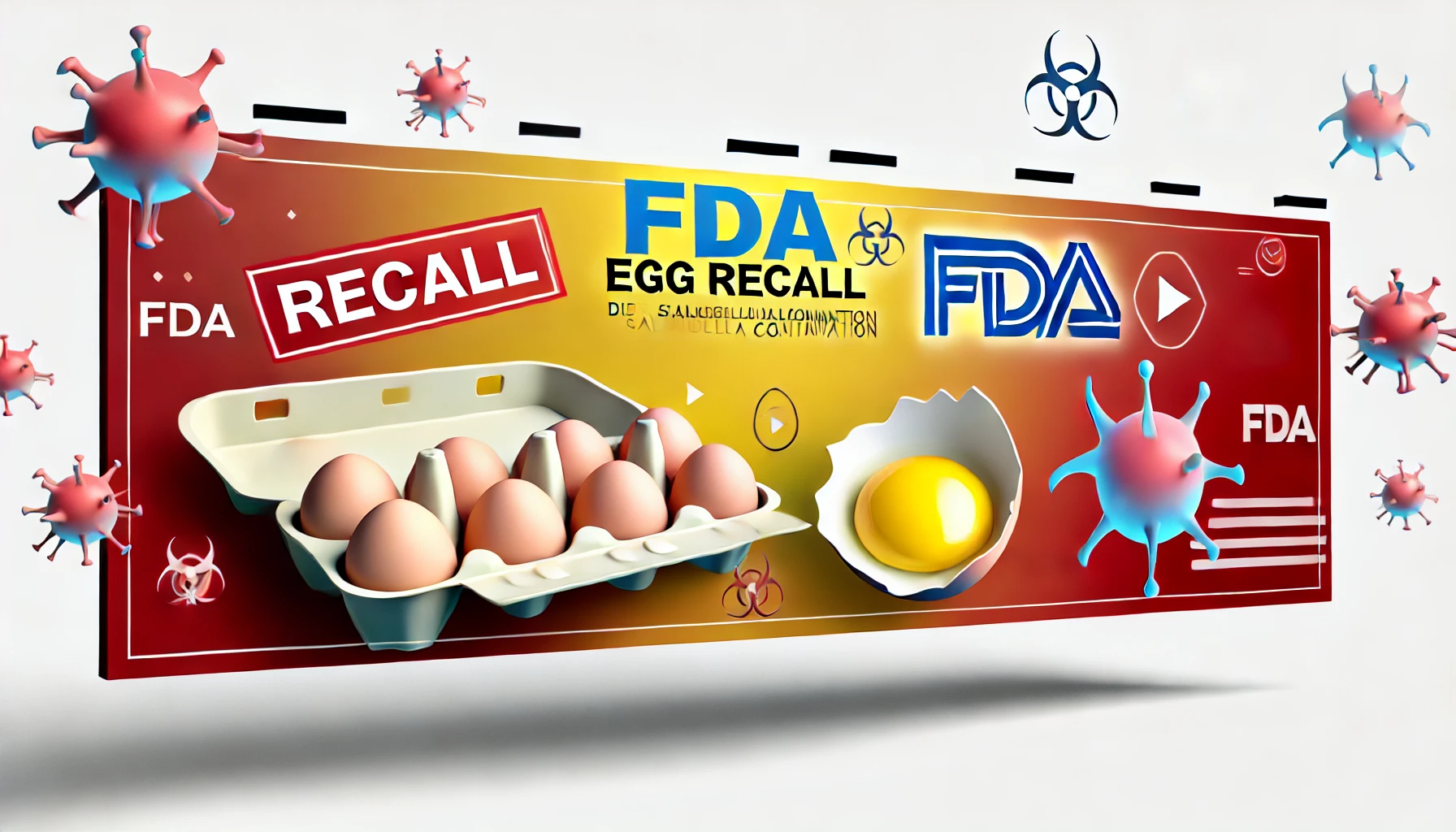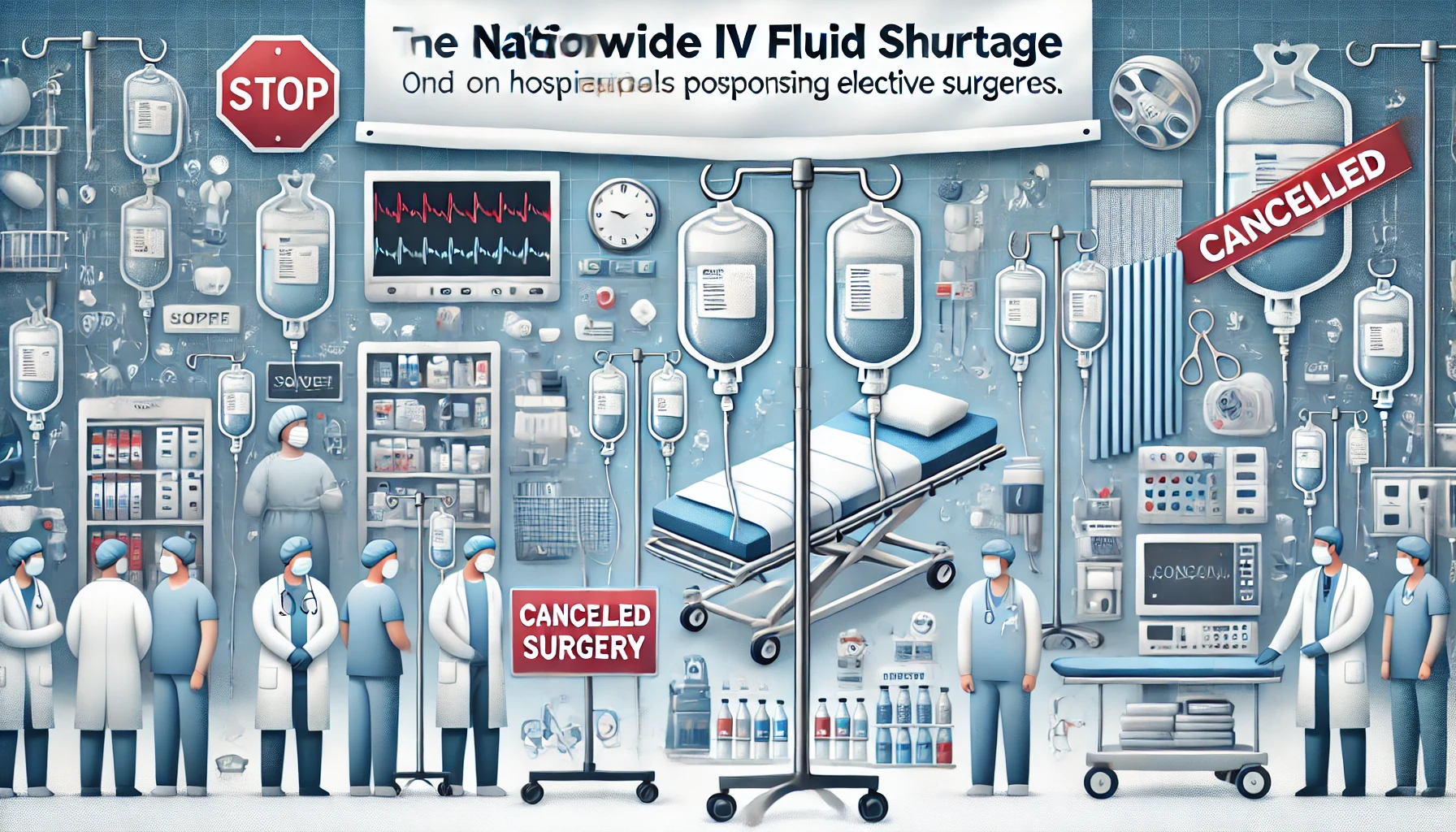Understanding the FDA Egg Recall: What You Need to Know About Milo’s Poultry Farms and Salmonella Risks
In September 2024, the FDA issued an urgent recall for eggs distributed by Milo’s Poultry Farms and Tony’s Fresh Market due to concerns about a Salmonella outbreak. The recall encompasses eggs distributed across several states, with the potential to cause serious adverse health consequences or death. This blog will explore what the recall means, the health risks associated with Salmonella, and how consumers can stay safe. We’ll also discuss the broader implications of FDA food recalls and how to avoid contamination risks.
What Is the FDA Egg Recall?
The FDA egg recall was initiated after investigations found that eggs distributed by Milo’s Poultry Farms were contaminated with Salmonella Enteritidis, a dangerous bacterium that can cause severe illness. The eggs were distributed to retailers and foodservice establishments in Wisconsin, Illinois, and Michigan, with products sold under the Milo’s Poultry Farms and Tony’s Fresh Market brands.
The recall includes all carton sizes and types of eggs, including conventional, cage-free, organic, and non-GMO varieties. Because the contamination was widespread, the FDA issued a Class I recall, the most serious classification, indicating that the use of the product could cause “serious adverse health consequences or death.”
The Health Risks of Salmonella in Eggs
Salmonella is one of the most common causes of foodborne illness in the United States. The Salmonella outbreak linked to these recalled eggs can cause severe gastrointestinal symptoms such as diarrhea, fever, and abdominal cramps. Most people infected with Salmonella develop symptoms within 12 to 72 hours of consuming contaminated food, and the illness can last between four to seven days(FDA).
While many people recover without treatment, certain populations are at higher risk of severe illness, including young children, the elderly, and individuals with weakened immune systems. In severe cases, Salmonella infection can spread from the intestines to the bloodstream, leading to hospitalization or even death.
If you suspect you have consumed Salmonella-contaminated eggs and are experiencing symptoms, it is critical to seek medical attention. Knowing the Salmonella symptoms from eggs can help individuals take quick action, potentially preventing the infection from worsening.
How the FDA Manages Food Recalls
The FDA has a robust system in place to handle food recalls, ensuring that contaminated products are quickly removed from shelves and consumer households. In this case, the FDA food recall process was triggered by an investigation into multiple Salmonella infections linked to eggs from Milo’s Poultry Farms. The FDA conducted tests and found Salmonella in samples collected from the farm’s packing facility, prompting an immediate recall(FDA).
Consumers who may have purchased the recalled eggs are advised to check their refrigerators for products from Milo’s Poultry Farms or Tony’s Fresh Market. If the eggs are part of the recall, the FDA recommends throwing them away immediately to prevent potential illness. It’s important to consult the recalled eggs list provided by the FDA for specific product details, including packaging information and expiration dates.
Symptoms of Salmonella from Contaminated Eggs
Salmonella symptoms from eggs are not always immediate, which can make it difficult to identify when you’ve consumed contaminated food. Common symptoms include:
- Diarrhea
- Fever
- Abdominal cramps
- Nausea and vomiting
Severe cases can result in dehydration, especially in young children and the elderly. If left untreated, Salmonella can spread to the bloodstream, causing more severe health complications. If you experience any of these symptoms after eating eggs, it’s essential to contact a healthcare provider immediately.
Preventing Egg Contamination Risks
While this particular recall has raised concerns, it’s important to remember that egg contamination risks are generally preventable. Following the FDA’s guidelines on food handling can help reduce the chances of illness:
- Cook eggs thoroughly: Ensure that eggs are cooked until both the whites and yolks are firm. This kills any Salmonella that might be present.
- Avoid raw eggs: Refrain from eating raw or undercooked eggs in dishes like homemade mayonnaise, salad dressings, or cookie dough.
- Proper storage: Always store eggs in the refrigerator at or below 40°F to minimize the risk of bacterial growth.
- Clean surfaces: Wash your hands, utensils, and countertops with hot, soapy water after handling raw eggs to prevent cross-contamination(FDA).
Being proactive about food safety can significantly reduce your exposure to Salmonella and other foodborne pathogens.
What Is a Class I Recall?
A Class I recall is the most severe type of recall issued by the FDA. It indicates that the product in question has the potential to cause serious health consequences or death if consumed. In this instance, the Class I egg recall for products from Milo’s Poultry Farms and Tony’s Fresh Market was issued due to the significant health risks associated with Salmonella contamination.
Consumers should take Class I recalls very seriously. If you have any recalled eggs in your home, follow the FDA’s recommendations and dispose of them immediately.
How to Stay Updated on FDA Food Recalls
Staying informed about FDA food recalls can help consumers protect themselves from unsafe products. The FDA regularly updates its website with information about ongoing recalls, including the products affected, distribution areas, and recommendations for consumers. You can find a complete recalled eggs list on the FDA’s recall page, which provides up-to-date information on which products are safe to consume and which should be discarded(FDA).
Additionally, subscribing to the FDA’s recall alerts or checking their website regularly will ensure that you are aware of any new recalls that could affect the products in your home.
Staying Safe Amid the Egg Recall
The FDA egg recall involving Milo’s Poultry Farms and Tony’s Fresh Market eggs highlights the serious health risks associated with Salmonella contamination. As this recall demonstrates, contaminated eggs can pose significant dangers, including severe illness or death. Consumers should remain vigilant, discard any affected products, and follow safe food handling practices to minimize egg contamination risks.
By staying informed and following FDA guidelines, you can keep your household safe from future foodborne illnesses. If you have any concerns about a product in your home, be sure to consult the FDA food recall database and check the recalled eggs list for updates.
For more information on food safety and recall processes, visit Regent Studies for expert resources and tips on protecting your health.
For further updates on this specific recall, you can also refer to the FDA’s Salmonella outbreak page(FDA).



